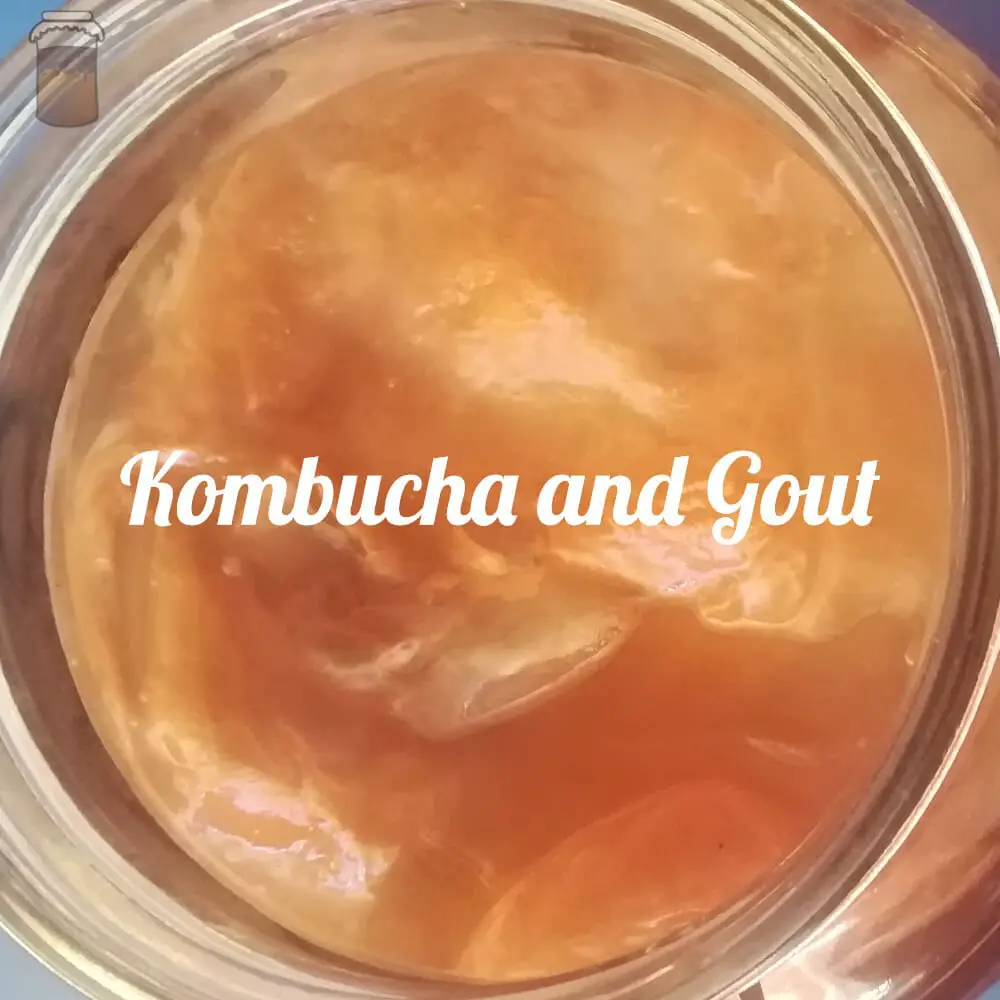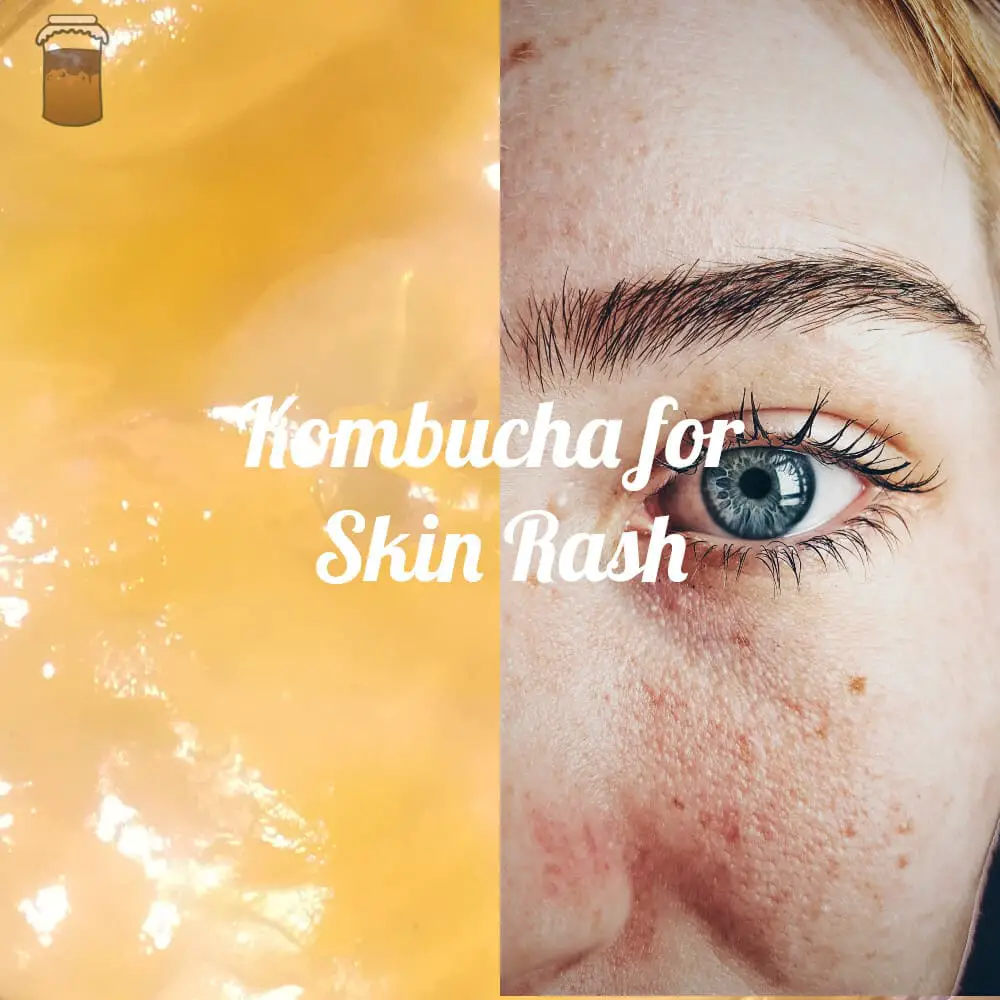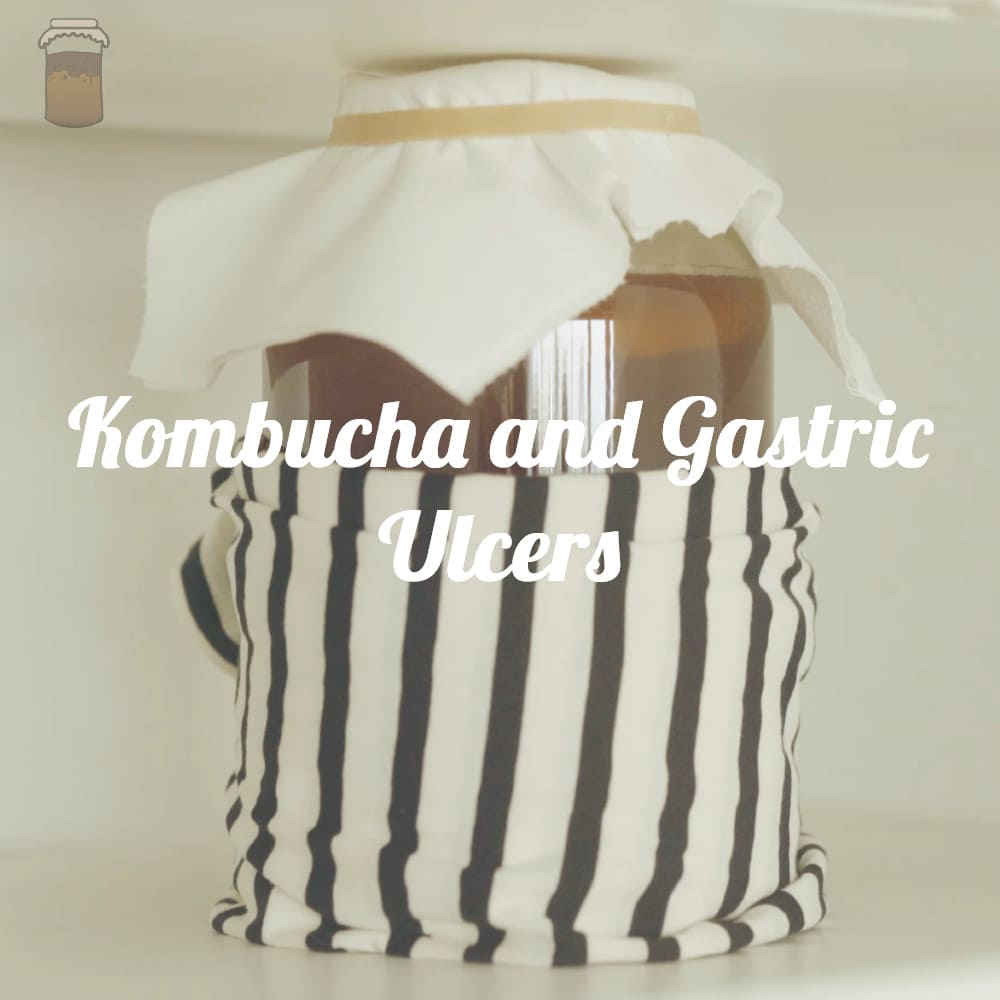
Is there a relationship between gout and kombucha? Gout is a disease triggered by excess uric acid in the bloodstream. Kombucha also contains “acids,” organic ones, such as lactic, acetic, and gluconic acid. Therefore, people may think consuming kombucha, given its acidic components, may trigger gout symptoms. But is this true? Can kombucha cause gout attacks?
In science, some studies have shown that black tea may decrease uric acid levels in humans susceptible to cardiovascular diseases. Other studies have associated kombucha consumption with curing diseases such as gout. [1] [2]
That should tell you something already, but let’s break it down.
What causes gout?
To understand the relationship between gout and kombucha, we must know a little about gout. Gout is a heterogeneous group of diseases resulting from urate crystals deposition in super-saturated extracellular fluids.
Clinical manifestations of gout are usually:
- Recurrent attacks of gout arthritis.
- Accumulation of crystalline deposits in periarticular areas, bone tissues, ligaments, and soft tissues.
- Formation of uric acid stones.
- Acute uric nephropathy because of a high concentration of uric acid in plasma.
So we see that the problem is the accumulation of uric acid. In humans, this comes from foods containing purine and from endogenously synthesized purine nucleotides, which are used to form nucleic acid. Urate is a breakdown product of purine residues from nucleic acids. [3]
So purine is the critical player in the relationship between kombucha and gout since, as we know, one substrate of kombucha is the same purine that is in black tea.
Kombucha as a trigger for gout: The origin
Tea is essential for the production of kombucha, particularly SCOBY, as tea and certain sugars* serve as a substrate for the chemical processes required for the creation and longevity of a tasty kombucha.
Now, tea is a source of purine, and as we explained above, this is a gout-promoting component because of its role in the production of uric acid. This idea is the basis of existing beliefs about whether kombucha causes gout.
While there are some reports on the web, primarily public forums, where people say they suffered a gout attack after drinking kombucha, there is no proof of this correlation.
*Note: I have read on several portals that, based on the principles of kombucha fermentation, the critical thing is sucrose, which is converted into ethanol and then acetic acid, and that tea takes a backseat until the point at which you can replace it. This is FALSE. Tea is vital to ensure the quality of SCOBY in the long term.
Does drinking kombucha increase uric acid?
Studies in rats show that consuming kombucha as a pre-treatment reduced serum uric acid levels. [4]
One of these studies showed that treatment with kombucha helped protect myocytes (the muscle cells in your heart) from adverse effects during a myocardial infarction by decreasing tissue injury and stabilizing cellular and subcellular organelles.
This is of paramount importance, as there is a close relationship between hyperuricemia and cardiovascular diseases, as established by this review. [5]
Moreover, human evidence regarding this is limited; rather, it is nonexistent. So far, this rat study is the most reliable answer we have.
Does tea in kombucha cause gout?
Concerning tea, the scientific evidence is clear. There is no relationship between tea consumption and uric acid levels or hyperuricemia (high uric acid concentrations in the blood) and gout. [6]
Some studies suggest the consumption of tea, especially black tea, may reduce uric acid levels and prevent the likelihood of hyperuricemia or cardiovascular accidents. [1]
By that logic, and by the same principles of fermentation, kombucha should not cause gout since it transforms the components of tea, along with sugars, during the fermentation process, into something that is not harmful to humans. [7]
So is kombucha good or bad for gout?
There are several articles where researchers describe a correlation between the consumption of kombucha with the prevention of gout attacks. [2]
It is important to note that there are no human studies designed with experimental and control groups necessary to conclude that kombucha is an unorthodox remedy for curing gout.
Studies in rats have modeled this, where they showed kombucha worked as a potent therapy for hyperuricemia by inhibiting the enzyme xanthine oxidase, responsible for catalyzing the oxidation of hypoxanthine to xanthine and subsequently to uric acid. [8]
Therefore, it is assumed that kombucha may play a role in preventing symptoms of hyperuricemia that cause gout attacks, even though we require more research on human populations before we can reach that conclusion.
So does kombucha cure gout?
Because no scientific studies have analyzed the relationship of kombucha consumption in humans with the prevention, management, or cure of gout, it is impossible to say this. Therefore, medical treatment that includes pharmaceutical remedies is still the best way to manage gout.
Given the role of kombucha in lowering levels of uric acid in rats, kombucha may have a similar effect in humans and ultimately contribute to the management or even cure of gout someday.
The polyphenols in kombucha reinforce this, as these have been used as a natural medicine in managing hyperuricemia for a long time. Giving us even more reason to believe that kombucha may work as a complementary treatment for gout symptoms. [9] [10]
If I have gout, can I consume kombucha?
Based on our discussion, there is no contraindication to drinking kombucha if one has gout. In fact, the polyphenols in tea may even be therapeutic for this disease. As kombucha has more polyphenols than tea, it may also have a similar effect.
With all this background, we can conclude that kombucha consumption in people who suffer from gout symptoms does not cause gout and may even serve as a complementary treatment for the disease if you drink it at the recommended doses, being part of the many possible kombucha benefits.
I’m glad to hear that you’re interested in these topics! And here you have more related content.
[1] https://pubmed.ncbi.nlm.nih.gov/19963031/
[2] https://meridian.allenpress.com/jfp/article/63/7/976/168061/Kombucha-the-Fermented-Tea-Microbiology
[3] https://pubmed.ncbi.nlm.nih.gov/15299172/
[4] https://www.researchgate.net/profile/Reema-Lobo/publication/308746952_Evaluation_of_Kombucha_Consumption_Against_Myocardial_Infarction/links/57ee04a008ae711da939a564/Evaluation-of-Kombucha-Consumption-Against-Myocardial-Infarction.pdf
[5] https://pubmed.ncbi.nlm.nih.gov/19852752/
[6] https://www.ncbi.nlm.nih.gov/pmc/articles/PMC5331744/
[7] https://books.google.com/books?hl=en&lr=&id=NvDjlu7rATgC&oi=fnd&pg=PA7&dq=kombucha+gout&ots=oCtYzZjg4n&sig=cenJPbNM8c7lh6g5aKYyAj9I5Xs&redir_esc=y#v=onepage&q=gout&f=false
[8] https://www.researchgate.net/publication/282484887_XANTHINE_OXYDASE_INHIBITION_OF_KOMBUCHA_TEA_IN_HYPERURICEMIA_INDUCED_WISTAR_RAT_decrease_of_uric_acid_malondialdehyde_and_8-hydroxy-2%27-deoxyguanosine
[9] https://onlinelibrary.wiley.com/doi/full/10.1002/fft2.27






